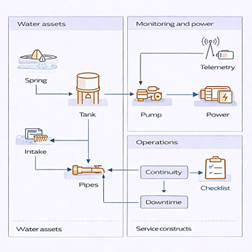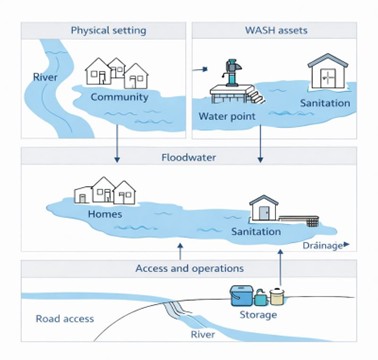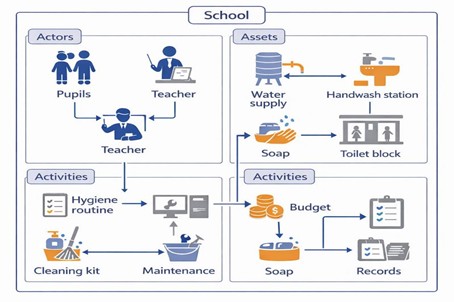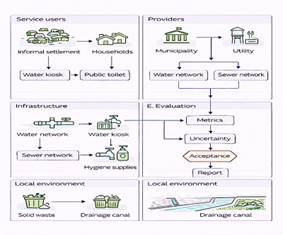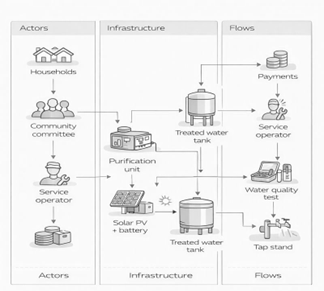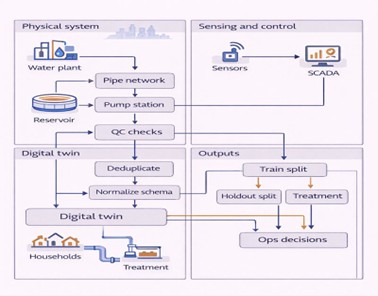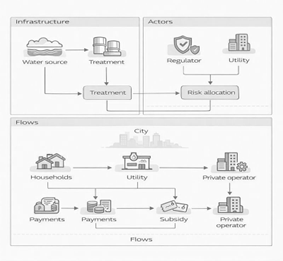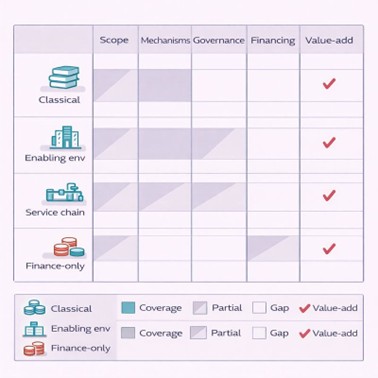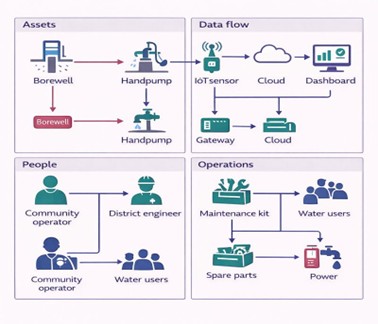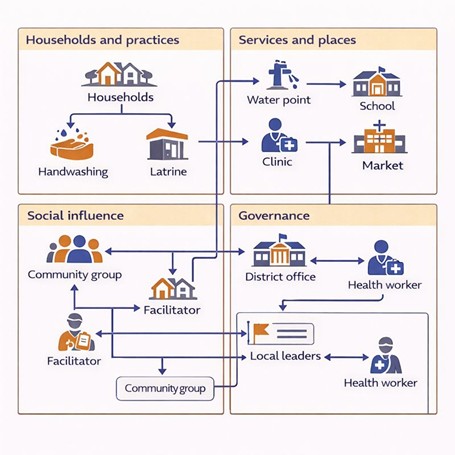Waterlines - Online ISSN: 1756-3488
Waterlines journal comprises over 40 years of debate and perspectives around the key challenges facing engineers, health professionals, community development workers, researchers and policy makers in the WASH sector. The articles in this peer-reviewed journal set out how these issues may be tackled using affordable, sustainable systems with reference to wider policy and institutional frameworks.
Current Issue
Vol. 43 No. 2 (2025)
Articles
Welcome to Waterlines
A Premier Journal on Water, Sanitation and Hygiene for Global Development
Waterlines is an internationally recognized, peer-reviewed journal that focuses on the practical application of water, sanitation, and hygiene (WASH) services in low- and middle-income countries. Established with the mission of bridging the gap between academic research, on-the-ground practices, and global policy, Waterlines has become an essential resource for development professionals, researchers, engineers, health workers, and humanitarian agencies alike.
Why Waterlines Matters
Globally, billions still lack access to safe drinking water, improved sanitation, and basic hygiene services—challenges that are deeply interlinked with public health, poverty, education, gender equality, urban planning, and climate change. Waterlines tackles these complexities by publishing evidence-driven, field-informed research that advances solutions for:
-
Water supply technologies and rural infrastructure
-
Urban WASH system challenges and innovations
-
Hygiene promotion and behavior change methodologies
-
Sanitation entrepreneurship and faecal sludge management
-
Climate-resilient and inclusive WASH strategies
-
Menstrual hygiene management and gender equity in WASH
-
Humanitarian WASH responses in conflict and disaster zones
Our Global Relevance
Each article published in Waterlines contributes toward the achievement of the United Nations Sustainable Development Goals (SDGs)—particularly:
-
SDG 6: Clean Water and Sanitation
-
SDG 3: Good Health and Well-being
-
SDG 5: Gender Equality
-
SDG 11: Sustainable Cities and Communities
-
SDG 13: Climate Action
We welcome submissions from both academic and non-academic contributors—including NGOs, WASH consultants, health professionals, and policymakers. By encouraging real-world insight alongside rigorous research, Waterlines fosters collaboration across disciplines and geographies.
Call for Papers
Are you working on a breakthrough in water filtration for underserved regions? Conducting a sanitation impact study in a refugee setting? Measuring hygiene behavior change through digital tools?
Submit your manuscript today and contribute to the global conversation on sustainable and equitable WASH solutions.


